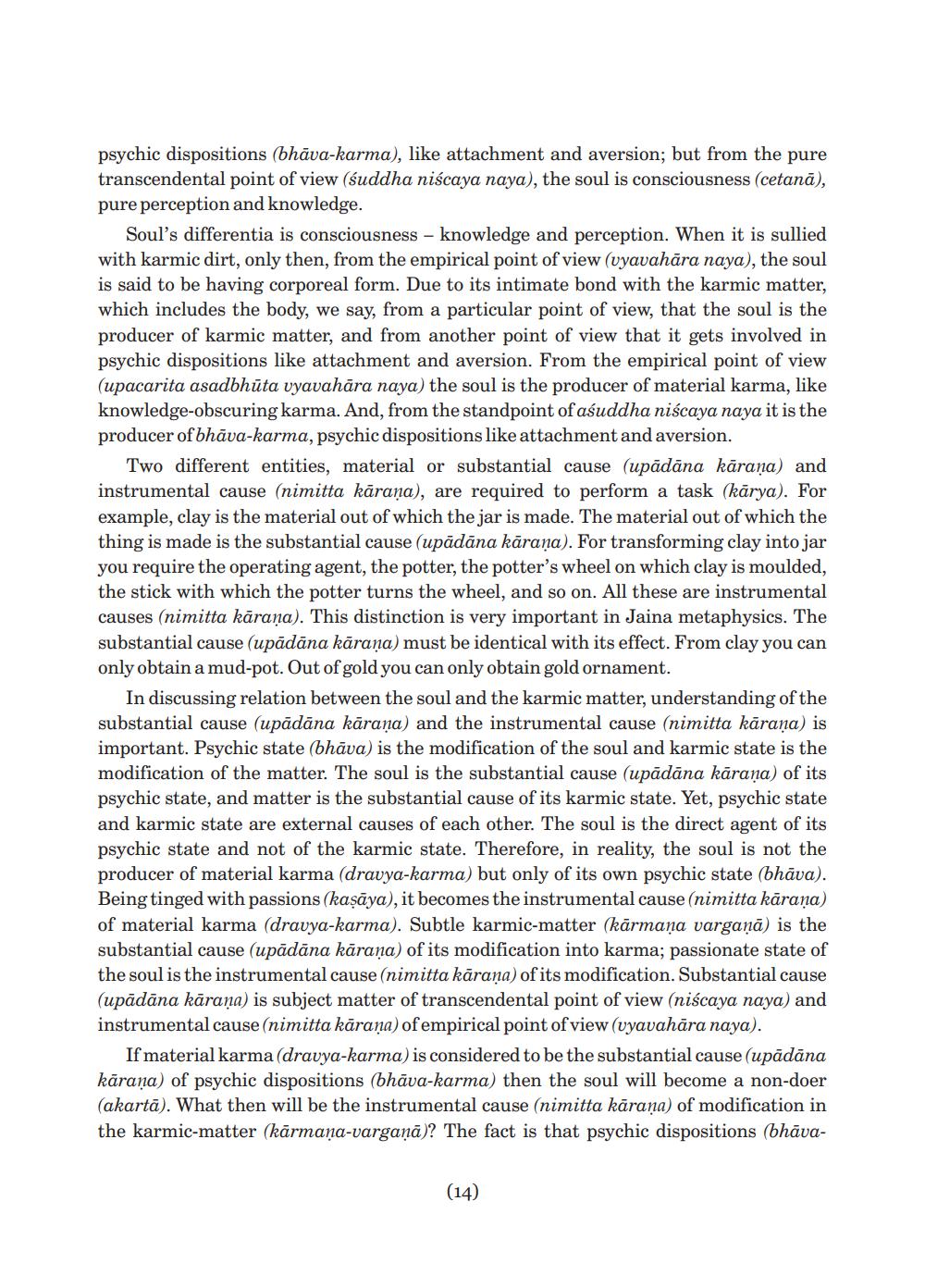________________
psychic dispositions (bhāva-karma), like attachment and aversion; but from the pure transcendental point of view (śuddha niscaya naya), the soul is consciousness (cetanā), pure perception and knowledge.
Soul's differentia is consciousness - knowledge and perception. When it is sullied with karmic dirt, only then, from the empirical point of view (vyavahāra naya), the soul is said to be having corporeal form. Due to its intimate bond with the karmic matter, which includes the body, we say, from a particular point of view, that the soul is the producer of karmic matter, and from another point of view that it gets involved in psychic dispositions like attachment and aversion. From the empirical point of view (upacarita asadbhūta vyavahāra naya) the soul is the producer of material karma, like knowledge-obscuring karma. And, from the standpoint of aśuddha niscaya naya it is the producer of bhāva-karma, psychic dispositions like attachment and aversion.
Two different entities, material or substantial cause (upādāna kārana) and instrumental cause (nimitta kārana), are required to perform a task (kārya). For example, clay is the material out of which the jar is made. The material out of which the thing is made is the substantial cause (upādāna kārana). For transforming clay into jar you require the operating agent, the potter, the potter's wheel on which clay is moulded, the stick with which the potter turns the wheel, and so on. All these are instrumental causes (nimitta kāraṇa). This distinction is very important in Jaina metaphysics. The substantial cause (upādāna kāraṇa) must be identical with its effect. From clay you can only obtain a mud-pot. Out of gold you can only obtain gold ornament.
In discussing relation between the soul and the karmic matter, understanding of the substantial cause (upādāna kāraņa) and the instrumental cause (nimitta kāraņa) is important. Psychic state (bhāva) is the modification of the soul and karmic state is the modification of the matter. The soul is the substantial cause (upādāna kārana) of its psychic state, and matter is the substantial cause of its karmic state. Yet, psychic state and karmic state are external causes of each other. The soul is the direct agent of its psychic state and not of the karmic state. Therefore, in reality, the soul is not the producer of material karma (dravya-karma) but only of its own psychic state (bhāva). Being tinged with passions (kasāya), it becomes the instrumental cause (nimitta karana) of material karma (dravya-karma). Subtle karmic-matter (kārmaņa vargaņā) is the substantial cause (upādāna kārana) of its modification into karma; passionate state of the soul is the instrumental cause (nimitta kāraņa) of its modification. Substantial cause (upādāna kāraņa) is subject matter of transcendental point of view (niscaya naya) and instrumental cause (nimitta kārana) of empirical point of view (vyavahāra naya).
If material karma (dravya-karma) is considered to be the substantial cause (upādāna kāraṇa) of psychic dispositions (bhāva-karma) then the soul will become a non-doer (akartā). What then will be the instrumental cause (nimitta kāraṇa) of modification in the karmic-matter (kārmaņa-vargaņā)? The fact is that psychic dispositions (bhāva
(14)




